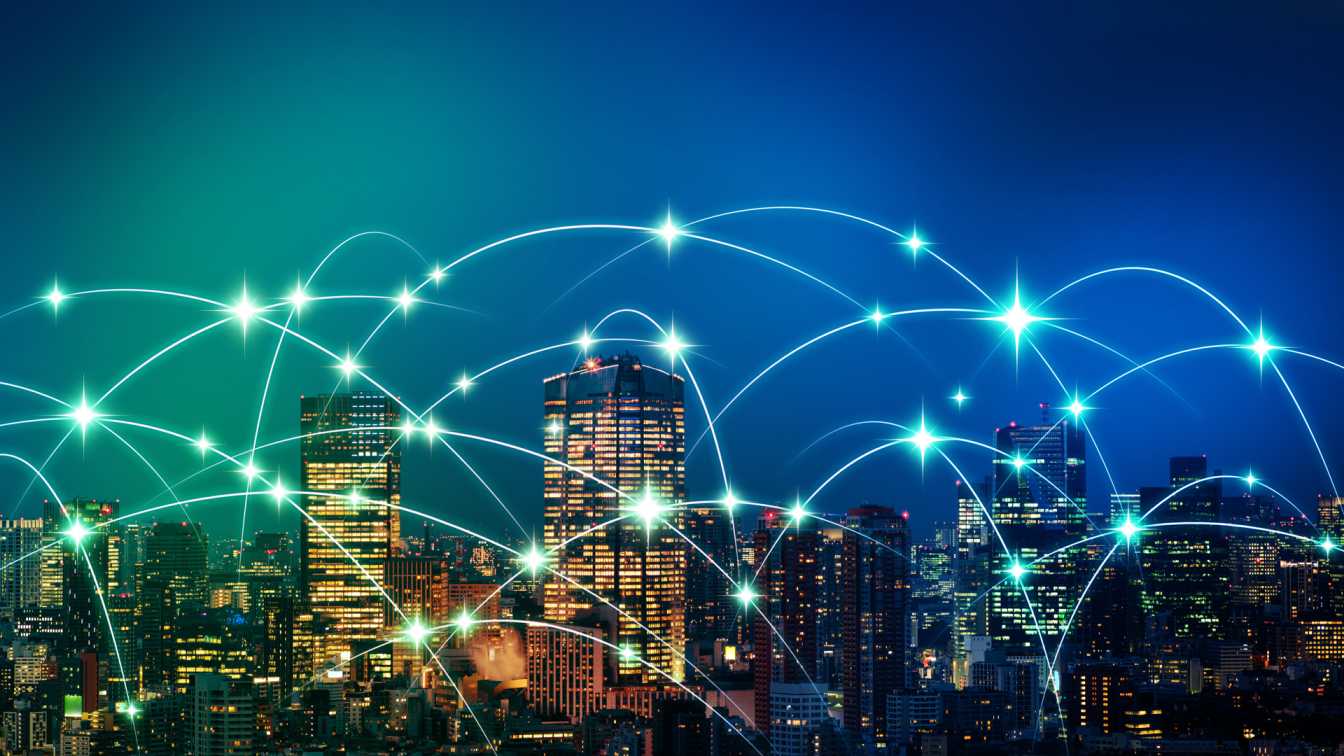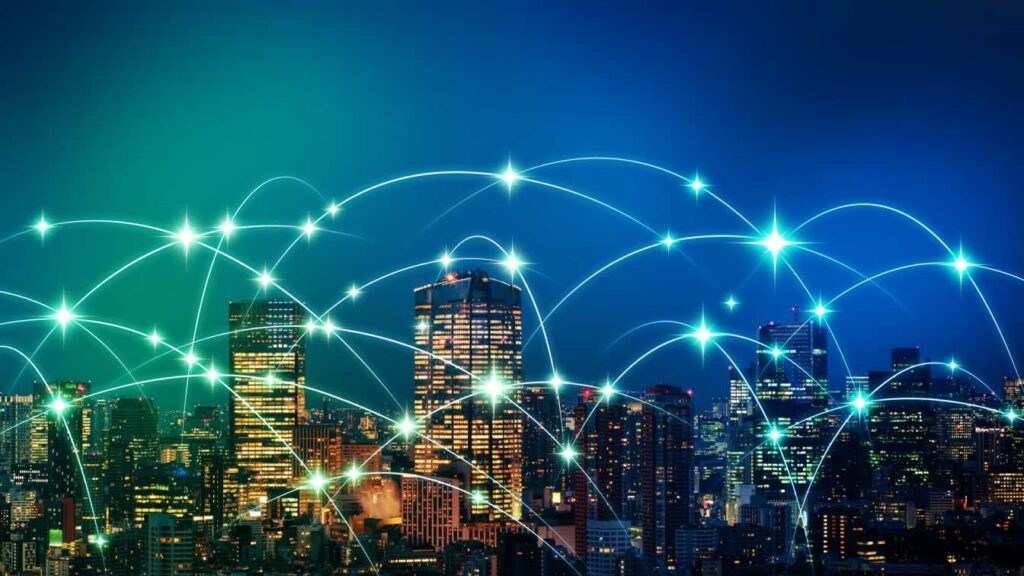Internet-Based Technologies Reshaping the Urban Environment
Smart cities are next-gen urban innovations that will revolutionize the way we live in the modern world. As the world population continues to grow, smart cities are a viable solution to effectively manage them with the help of internet technologies.
In this article, we will discuss the major revolutionary internet-driven technologies that are transforming the urban environment.
AI and Big Data – A Powerful Combination
Powered by high-speed fiber internet service, Artificial Intelligence and Big Data are the revolutionary technologies that are critical for effective urban management. By harnessing their integration, paves the way for efficient and accurate data collection for analysis that helps in smarter decision-making processes. There are tons of use cases and applications of these revolutionary technologies.
For instance, they help in analyzing traffic patterns to minimize traffic congestion and jams, predicting utility demand for efficient usage of electricity and water, and using predictive maintenance for the upkeep of all the major equipment and machinery deployed in the smart city infrastructure.
Advanced data analytics powered by AI is pivotal for urban planning, assisting city leaders in predicting population growth patterns, possible impacts of changing environments and infrastructure demands. Nonetheless, it’s mission critical for these city leaders to cautiously leverage these technologies. They need to abide by the ethical and regulatory standards to ensure the safety of privacy of the data collected.
IoT – Infrastructure That Works Behind the Scenes
The Internet of Things (IoT) serves as the foundation of the infrastructure of a smart city. They are a set of interconnected physical devices, such as sensors, home appliances and vehicles, and other smart devices that run on the internet, software and electronics. IoT devices collect and exchange data, allowing city leaders to manage and monitor the city infrastructure in real time.
This enables city leaders to efficiently manage the smart city operations, such as allowing them to optimize energy distribution, real-time updates on public transportation and enhanced level of response times, in case of emergencies. So, with the help of IoT, city leaders can lay the foundation and even create smart cities that make the lives of the residents convenient.
Cloud Computing: Streamlining Smart City Operations
Cloud computing powers up the smart city operations by efficiently processing and storing a vast volume of data. The primary function of this technology is to store big data, enabling it to be analyzed and make well-informed decisions. Cloud computing technology offers its data processing capabilities of all the data generated and collected from IoT devices and AI applications.
Cloud computing offers a platform that paves the way for integrating various services. It ensures seamless communication and collaboration across all the city departments. That ultimately helps city leaders to collaborate and ensure that the lives of their citizens are much better and more convenient.
Smart Lighting and Energy Management
Smart lighting and efficient energy consumption are crucial components of a sustainable smart city. There is smart lighting technology, including LED lights and automated controls that helps in massive reduction in energy consumption and minimizing the cost of managing the infrastructure. One of the primary functions of these smart lighting systems is to automatically adjust its brightness as per the time of day and the number of people present in a particular place, leading to enhanced cost savings on energy consumption.
In the energy consumption of a smart city, this technology mainly harnesses the power of high-speed fiber internet service to optimally generate, distribute and consume energy. For instance, this technology seamlessly integrates with renewable energy sources and implements smart grids for effective and efficient generation, distribution and consumption of energy. Not only that but also using renewable energy sources leads to a reduction of carbon footprint and a more sustainable urban environment.
Environmental Sustainability And Smart Cities
Environmental sustainability is one of the primary goals of a smart city. It leverages technology to minimize carbon footprint, leading to a sustainable and eco-friendly urban system.
Let’s take a deeper dive into efficient energy conservation, water and waste management that contribute to achieving the goals of a sustainable urban environment.
1. Building Automation Systems For Energy Conservation
Building automation systems is mission-critical for energy conservation. In addition to integrating IoT devices, such as sensors for controlling and optimizing heat, lights, and security, AI-powered predictive maintenance is also being utilized for operational efficiency. For instance, predictive maintenance closely monitors all of these smart devices and sensors and promptly notifies the relevant authorities about the possible malfunction and breakdown of these devices. So, they not only help in efficiently consuming energy but also extend the lifespan of building infrastructure.
Moreover, smart cities are on the verge of using smart windows that automatically adjust their transparency according to sunlight intensity. In this way, smart windows further optimize energy consumption by adjusting indoor temperatures efficiently, minimizing the dependability on thermostats.
Water Consumption Tracking And Waste Management
Smart cities can use sustainable technology for effective management. In addition to water monitoring and leak detection, smart cities are investing in utilizing rainwater harvesting systems integrated with IoT-enabled devices. The primary objective of these systems is to refine this water for non-potable uses. That means it can be used for everything except for drinking. This is a tremendous step forward for efficient water utilization without the need for a municipal water supply.
When it comes to waste management, smart cities are aiming towards zero-waste goals. They are harnessing the power of smart recycle bins that closely monitor the fill levels and using image recognition technology to identify recyclable waste. This ultimately leads to efficient waste management and promotes a sense of responsibility for disposing of waste among citizens.
Final Words
As internet technologies continue to evolve, they will usher in a new era of sustainable urban development, innovation, and management. Smart cities are a next-gen world that will forever shape the lives of its citizens and make the environment more sustainable for future generations.
However, smart cities require careful planning by city leaders and management and unwavering commitment to overcome the challenges and concerns that comes with increased connectivity and data collection through IoT devices.
Cities have considered and effectively addressed all these challenges and are surely on their way to positioning themselves to thrive in the competitive world in a sustainable manner.





2 thoughts on “Internet-Based Technologies Reshaping the Urban Environment”